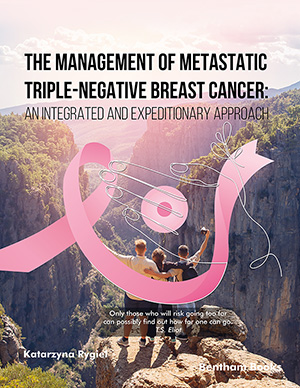Abstract
Colorectal cancer (CRC) has a high prevalence and mortality rate globally. To date, the progression mechanisms of CRC are still elusive. Exosomes (~100 nm in diameter) correspond to a subset of extracellular vesicles formed by an array of cancerous cells and stromal cells. These particular nanovesicles carry and transmit bioactive molecules, like proteins, lipids, and genetic materials, which mediate the crosstalk between cancer cells and the microenvironment. Accumulating evidence has shown the decisive functions of exosomes in the development, metastasis, and therapy resistance of CRC. Furthermore, some recent studies have also revealed the abilities of exosomes to function as either biomarkers or therapeutic targets for CRC. This review focuses on the specific mechanisms of exosomes in regulating CRC progression and summarizes the potential clinical applications of exosomes in the diagnosis and therapy of CRC.
Keywords: Colorectal cancer, exosomes, tumorigenesis, metastasis, therapy resistance, biomarkers.
[http://dx.doi.org/10.3322/caac.21654] [PMID: 33433946]
[http://dx.doi.org/10.1136/gutjnl-2015-310912] [PMID: 26818619]
[http://dx.doi.org/10.1038/s41575-019-0189-8] [PMID: 31455888]
[http://dx.doi.org/10.1080/14737140.2017.1392243] [PMID: 29022408]
[http://dx.doi.org/10.1016/j.tcb.2015.01.004] [PMID: 25683921]
[http://dx.doi.org/10.1016/j.cub.2018.01.059] [PMID: 29689228]
[http://dx.doi.org/10.1172/JCI81135] [PMID: 27035812]
[http://dx.doi.org/10.1038/s12276-019-0219-1] [PMID: 30872565]
[http://dx.doi.org/10.1038/s41556-018-0250-9] [PMID: 30602770]
[http://dx.doi.org/10.1126/science.aau6977] [PMID: 32029601]
[http://dx.doi.org/10.1146/annurev-biochem-013118-111902] [PMID: 31220978]
[http://dx.doi.org/10.1186/s12885-015-1568-3] [PMID: 26231887]
[http://dx.doi.org/10.1016/j.cell.2011.02.013] [PMID: 21376230]
[http://dx.doi.org/10.1186/s13046-019-1248-2] [PMID: 31200749]
[http://dx.doi.org/10.1007/s00432-021-03534-5] [PMID: 33511427]
[http://dx.doi.org/10.1016/j.semcdb.2015.02.010] [PMID: 25721812]
[http://dx.doi.org/10.1038/s41568-020-00299-w] [PMID: 32958932]
[http://dx.doi.org/10.1016/S0021-9258(18)48095-7] [PMID: 3597417]
[http://dx.doi.org/10.1007/s00018-017-2595-9] [PMID: 28733901]
[http://dx.doi.org/10.3390/cells8070727] [PMID: 31311206]
[http://dx.doi.org/10.1242/jcs.128868] [PMID: 24105262]
[http://dx.doi.org/10.1016/j.semcdb.2017.08.022] [PMID: 28807885]
[http://dx.doi.org/10.3390/cells8020099] [PMID: 30699987]
[http://dx.doi.org/10.1038/ncb2502] [PMID: 22660413]
[http://dx.doi.org/10.1038/ncomms13588] [PMID: 27882925]
[http://dx.doi.org/10.1038/nrm.2017.125] [PMID: 29339798]
[http://dx.doi.org/10.1038/ncb2000]
[http://dx.doi.org/10.1016/j.semcdb.2014.04.011] [PMID: 24727350]
[http://dx.doi.org/10.1007/s10571-016-0366-z] [PMID: 27053351]
[http://dx.doi.org/10.3402/jev.v3.24641] [PMID: 25143819]
[http://dx.doi.org/10.1016/j.canlet.2015.07.039] [PMID: 26276713]
[http://dx.doi.org/10.3390/ijms19051272] [PMID: 29695087]
[PMID: 21984967]
[http://dx.doi.org/10.18632/aging.101355] [PMID: 29283887]
[http://dx.doi.org/10.7150/ijbs.28288] [PMID: 30585272]
[http://dx.doi.org/10.1002/advs.201901278] [PMID: 31559140]
[http://dx.doi.org/10.3389/fonc.2019.01143] [PMID: 31737570]
[http://dx.doi.org/10.1007/s10555-019-09783-8] [PMID: 30715644]
[http://dx.doi.org/10.7150/thno.30958] [PMID: 31037150]
[http://dx.doi.org/10.7150/jca.33232] [PMID: 32626519]
[http://dx.doi.org/10.1016/j.omtn.2019.12.009] [PMID: 31955010]
[http://dx.doi.org/10.1186/s12943-020-01235-0] [PMID: 32713345]
[PMID: 31934075]
[http://dx.doi.org/10.1002/jcp.28747] [PMID: 31102273]
[http://dx.doi.org/10.1016/S0093-7754(02)70065-1] [PMID: 12516034]
[http://dx.doi.org/10.1016/j.ijbiomac.2019.03.221] [PMID: 30936013]
[http://dx.doi.org/10.18632/aging.103145] [PMID: 32364530]
[http://dx.doi.org/10.1371/journal.pone.0115170] [PMID: 25502753]
[http://dx.doi.org/10.1186/s12943-019-0980-8] [PMID: 30925927]
[http://dx.doi.org/10.1186/1471-2164-10-556] [PMID: 19930720]
[http://dx.doi.org/10.3727/096504016X14752792816791] [PMID: 27712599]
[http://dx.doi.org/10.1038/nrm3758] [PMID: 24556840]
[http://dx.doi.org/10.1002/1878-0261.12765] [PMID: 32679610]
[http://dx.doi.org/10.1186/s12943-019-1019-x] [PMID: 31064356]
[http://dx.doi.org/10.1186/s12967-020-02648-7] [PMID: 33407563]
[http://dx.doi.org/10.1007/s10620-020-06458-1]
[http://dx.doi.org/10.1016/j.ccell.2016.09.011] [PMID: 27846389]
[http://dx.doi.org/10.1038/s41467-018-07810-w] [PMID: 30568162]
[http://dx.doi.org/10.1093/carcin/bgy115] [PMID: 30184100]
[http://dx.doi.org/10.3892/or.2015.3843] [PMID: 25760247]
[http://dx.doi.org/10.1038/nature15756] [PMID: 26524530]
[http://dx.doi.org/10.1038/s41467-020-14869-x] [PMID: 32139701]
[http://dx.doi.org/10.1186/s13046-020-01816-3] [PMID: 33413536]
[http://dx.doi.org/10.1186/s12943-018-0928-4] [PMID: 30646912]
[http://dx.doi.org/10.1007/s00262-019-02373-1] [PMID: 31375885]
[http://dx.doi.org/10.1053/j.gastro.2005.03.045] [PMID: 15940614]
[http://dx.doi.org/10.18632/oncotarget.7041] [PMID: 27081032]
[http://dx.doi.org/10.1158/0008-5472.CAN-06-1819] [PMID: 16982774]
[http://dx.doi.org/10.1155/2019/2368249] [PMID: 30931335]
[http://dx.doi.org/10.1038/s41467-018-03224-w] [PMID: 29472616]
[http://dx.doi.org/10.18632/oncotarget.20009] [PMID: 29108252]
[http://dx.doi.org/10.1038/s41419-019-2077-0] [PMID: 31685807]
[http://dx.doi.org/10.1016/j.canlet.2020.01.005] [PMID: 31931030]
[http://dx.doi.org/10.1038/s41577-019-0264-y] [PMID: 31965064]
[http://dx.doi.org/10.3109/03602532.2011.638303] [PMID: 22497631]
[http://dx.doi.org/10.1038/s41388-018-0557-9] [PMID: 30390075]
[http://dx.doi.org/10.7150/thno.25541] [PMID: 30083271]
[http://dx.doi.org/10.1002/ijc.32608] [PMID: 31381140]
[http://dx.doi.org/10.1002/1878-0261.12629] [PMID: 31901148]
[http://dx.doi.org/10.1038/s41598-019-53063-y] [PMID: 31712601]
[http://dx.doi.org/10.1158/2159-8290.CD-14-0462] [PMID: 25293556]
[http://dx.doi.org/10.1038/srep23892] [PMID: 27046651]
[http://dx.doi.org/10.1186/s12935-018-0660-6] [PMID: 30377411]
[http://dx.doi.org/10.1590/1414-431x20176472] [PMID: 29160412]
[http://dx.doi.org/10.1056/NEJMoa033403] [PMID: 15616205]
[http://dx.doi.org/10.3748/wjg.v23.i28.5086] [PMID: 28811705]
[http://dx.doi.org/10.3748/wjg.v22.i5.1745] [PMID: 26855534]
[http://dx.doi.org/10.1002/jcp.26936] [PMID: 30078189]
[http://dx.doi.org/10.1093/clinchem/47.4.624] [PMID: 11274010]
[http://dx.doi.org/10.1016/j.tips.2016.11.009] [PMID: 28012700]
[http://dx.doi.org/10.1002/cncr.29499] [PMID: 26060090]
[http://dx.doi.org/10.1111/jcmm.12941] [PMID: 28233416]
[http://dx.doi.org/10.1021/acsnano.7b07782] [PMID: 29300458]
[http://dx.doi.org/10.1371/journal.pone.0092921] [PMID: 24705249]
[http://dx.doi.org/10.1097/JCMA.0000000000000031] [PMID: 30913118]
[http://dx.doi.org/10.3389/fonc.2019.01129] [PMID: 31750241]
[http://dx.doi.org/10.3233/CBM-190156] [PMID: 31306108]
[http://dx.doi.org/10.1038/s41598-017-04386-1] [PMID: 28646161]
[http://dx.doi.org/10.1080/20013078.2019.1643670] [PMID: 31448068]
[http://dx.doi.org/10.1016/j.tranon.2017.12.012] [PMID: 29367070]
[http://dx.doi.org/10.1002/jcb.26609] [PMID: 29240249]
[http://dx.doi.org/10.1159/000463387] [PMID: 28376502]
[http://dx.doi.org/10.3233/CBM-171011] [PMID: 29630521]
[http://dx.doi.org/10.1038/s41419-019-1804-x] [PMID: 31358735]
[http://dx.doi.org/10.1016/j.omtn.2018.05.009] [PMID: 30195762]
[http://dx.doi.org/10.1016/j.biopha.2019.108758] [PMID: 30877883]
[http://dx.doi.org/10.18632/oncotarget.13465] [PMID: 27888803]
[http://dx.doi.org/10.1159/000495961] [PMID: 30562751]
[http://dx.doi.org/10.3389/fgene.2019.01096] [PMID: 31737058]
[http://dx.doi.org/10.1021/nn404945r] [PMID: 24383518]
[http://dx.doi.org/10.1016/j.gene.2015.08.067] [PMID: 26341056]
[http://dx.doi.org/10.1021/nn402232g] [PMID: 24004438]
[http://dx.doi.org/10.1186/s12951-019-0563-2] [PMID: 31918721]
[http://dx.doi.org/10.1038/mt.2008.1] [PMID: 18362931]
 54
54 1
1




























